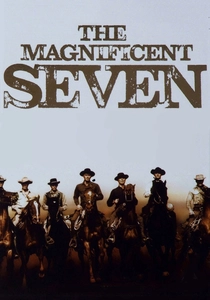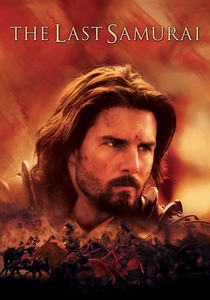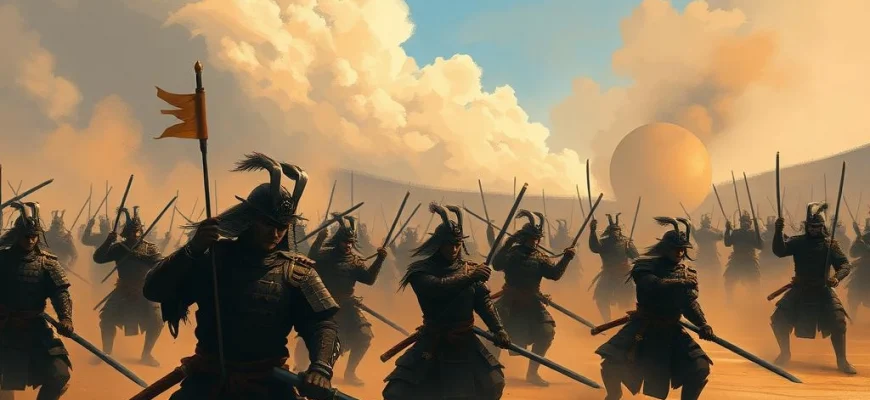If you loved the epic storytelling and intense action of *Seven Samurai* (1954), you're in for a treat. This article explores 10 movies and shows that capture the same spirit of camaraderie, strategic battles, and deep character development. Whether you're a fan of classic cinema or modern takes on the genre, these recommendations will keep you enthralled.

Throne of Blood (1957)
Description: A feudal lord's ambition leads to betrayal and downfall, exploring the destructive nature of power and the inevitability of fate, set against a backdrop of war and political intrigue.
Fact: The film is an adaptation of Shakespeare's 'Macbeth' transposed to feudal Japan, blending Noh theater elements with cinematic storytelling.
 Watch Now
Watch Now 
The Hidden Fortress (1958)
Description: A princess and her loyal general, aided by two bumbling peasants, navigate enemy territory, combining adventure, humor, and the struggle for survival.
Fact: George Lucas cited this film as a major influence for 'Star Wars,' particularly in its use of a story told from the perspective of minor characters.
 Watch Now
Watch Now 
The Magnificent Seven (1960)
Description: A classic Western that follows a group of hired gunslingers who come together to protect a small village from bandits, mirroring the narrative of assembling a team to defend the defenseless.
Fact: The film is a remake of a Japanese samurai film and was one of the first Westerns to feature an ensemble cast of major stars.
 Watch Now
Watch Now 
Yojimbo (1961)
Description: A masterless samurai plays both sides of a town's gang war against each other, showcasing themes of strategy, honor, and the lone warrior's role in society.
Fact: The story was inspired by American Westerns, particularly the works of Dashiell Hammett, and later influenced the spaghetti Western genre.
 Watch Now
Watch Now 
Harakiri (1962)
Description: A ronin seeks revenge against a feudal lord, unraveling a tale of honor, hypocrisy, and the harsh realities of the samurai code.
Fact: The film is renowned for its critical deconstruction of the samurai mythos and its use of flashbacks to reveal the protagonist's tragic past.
 Watch Now
Watch Now 
Sanjuro (1962)
Description: A sequel that continues the adventures of a cunning ronin who aids a group of young samurai in uncovering corruption, emphasizing clever tactics and moral ambiguity.
Fact: The film is noted for its minimalist score and the dynamic use of silence to heighten tension during key scenes.
 Watch Now
Watch Now 
Lady Snowblood (1973)
Description: A woman trained as an assassin seeks vengeance for her family's murder, embodying themes of retribution, female empowerment, and the cost of violence.
Fact: The film's stylized violence and revenge narrative heavily influenced Quentin Tarantino's 'Kill Bill' series.
 Watch Now
Watch Now 
The Last Samurai (2003)
Description: A disillusioned American soldier finds redemption among samurai resisting the modernization of Japan, highlighting the clash between tradition and progress.
Fact: The film's production involved extensive historical research and the construction of a full-scale replica of a 19th-century Japanese village.
 Watch Now
Watch Now 
Zatoichi (2003)
Description: A blind masseur and swordsman becomes the unlikely protector of a town oppressed by gangsters, blending action with a deep sense of justice and humanity.
Fact: The character of Zatoichi has appeared in over 25 films and a television series, making him one of Japan's most enduring cinematic figures.
 Watch Now
Watch Now 
13 Assassins (2010)
Description: A group of samurai band together to assassinate a sadistic lord, featuring a climactic battle sequence that underscores themes of sacrifice and duty.
Fact: The film is a remake of a 1963 black-and-white Japanese film and is known for its meticulously choreographed 45-minute battle scene.
 Watch Now
Watch Now 








